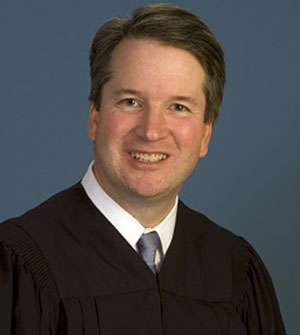
NASHVILLE (BP) — Tennessee and Virginia would become the latest states in the U.S. to declare pornography a public health hazard under resolutions introduced in the states’ legislatures.
 Tennessee Senate Joint Resolution 35, which was filed in the state Senate Tuesday (Jan. 24), urges the state to “recognize pornography as a public health hazard leading to a broad spectrum of individual and public health impacts and societal harms.” The resolution acknowledges the need for “education, prevention, research, and policy change at the community and societal level in order to address the epidemic” harming the state and nation.
Tennessee Senate Joint Resolution 35, which was filed in the state Senate Tuesday (Jan. 24), urges the state to “recognize pornography as a public health hazard leading to a broad spectrum of individual and public health impacts and societal harms.” The resolution acknowledges the need for “education, prevention, research, and policy change at the community and societal level in order to address the epidemic” harming the state and nation.
Republican Sen. Mae Beavers from Mt. Juliet reintroduced the bill after it passed the Senate in April 2016, but was not voted on in the House.
Her resolution follows a comparable measure introduced in December 2016 by Virginia Republican Del. Robert G. Marshall and assigned Jan. 17 to a Virginia House subcommittee, according to the state’s General Assembly website. Marshall’s measure urges “the need for education, prevention, research, and policy change at the community and societal level in order to address the pornography epidemic that is harming the people of the commonwealth and the nation.”
Last year, Utah Gov. Gary Herbert signed a similar resolution.
See related story.
In announcing the Tennessee measure, Beavers said what was previously considered hardcore pornography has now become main stream, and with technology, the average age of exposure to pornography is 11 to 12. She cited Washington State studies showing that as recently as 2004, 24.7 percent of convicted murderers in that state said pornography served as a trigger for their crimes.
Pornography is potentially biologically addictive, the resolution states, is detrimental to families, discourages young men from marriage and leads to marital dissatisfaction and infidelity.
Pornography treats women as “objects and commodities for the viewer’s use,” “normalizes violence and abuse of women and children,” “increases the demand for sex trafficking, prostitution, and … child pornography,” and may cause emotional, mental and medical illnesses, Beavers’ resolution reads.
The Utah resolution, sponsored by Republican Todd Weiler, includes much of the same verbiage as Beavers’ and Marshall’s documents. Gov. Herbert signed it in March, 2016, about the same time Beavers first introduced the Tennessee measure.
“We are sounding a voice of warning,” Herbert said with his signature. “There are real health risks that are associated with viewing pornography.” Utah also passed a law making it a misdemeanor offense if computer technicians fail to report child pornography to law enforcement officials.
Utah’s actions were met with praise, including affirmations from Southern Baptist ethicist Russell D. Moore and Internet safety advocate Donna Rice Hughes.
Utah was “exactly right” to say pornography is creating a “public health crisis,” a crisis that exists inside, as well as outside, the church, said Moore, president of the Ethics and Religious Liberty Commission. “It’s an epidemic not just in American culture but in evangelical churches too.”
Hughes, president of the Internet safety advocacy group Enough Is Enough (EIE), called the resolution “part of a concerted effort to begin framing the issue as not merely a ‘moral’ issue, but a social issue with enormous costs that negatively impacts individuals and societies,” Hughes said. “For over two decades, the Internet pornography industry has been able to succeed on the myth that pornography is just harmless fun.”
The Southern Baptist Convention has passed nearly 25 resolutions that address pornography either directly or indirectly, beginning as early as 1959 and recurring as recently as 2015. The latest resolution “On Pornography and Sexual Purity” recognizes pornography’s harm to men, women and children, and recommends several measures to end its proliferation.
“We commend the good news that Christ is fully able to deliver and restore those who have fallen in sexual sin who look to Him in faith and repentance,” the latest SBC resolution reads, “and call our churches to foster a culture of grace, mercy, and restoration.”
President Donald Trump during the 2016 campaign season signed EIE’s Children’s Internet Safety Presidential Pledge.
Trump pledged to, among other measures, “aggressively enforce existing federal laws to prevent the sexual exploitation of children online, including the federal obscenity laws, child pornography laws, sexual predation laws and the sex trafficking laws.” He pledged to appoint an attorney general who will make the prosecution of such laws a top priority, and to provide the intelligence community and law enforcement with necessary resources and tools to investigate and prosecute Internet crimes involving the sexual exploitation of children.
Much of pornography is protected by the First Amendment, according to the First Amendment Center at Vanderbilt University in Nashville, but pornography that falls into the categories of obscenity and child pornography are against the law.
Half of teenagers and nearly three-quarters of young adults come across pornography at least monthly, and both groups on average consider viewing pornographic images less immoral than failing to recycle, a 2016 study by Josh McDowell Ministry and the Barna Group found.

















